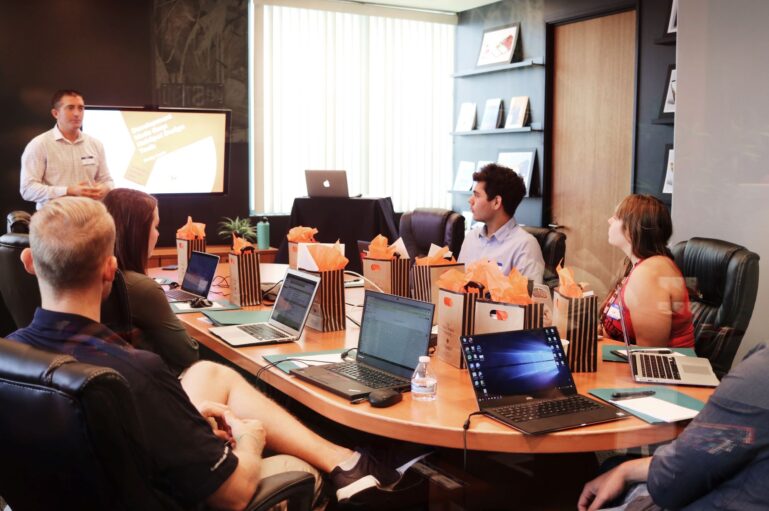The human resources function in companies and other organisations has come a long way in the past two decades – there has been a huge shift from previously “managing” all the issues that go with having employees to navigating, together with others in company leadership, the pressing issues that the world is facing currently. From purely, but necessary, administrative functions in the past, the human resources department has/is moving to more advisory roles, guiding the business through turbulent times and supporting employees with all the changes that need to be made to keep the business focused and applying its energy appropriately. Help is not only offered to the “strugglers” but also coaching to the “champions” to retain their skills and optimise them.
Jill Goldstein, global practice lead for talent and human resources operations at management consulting firm Accenture in the Miami area, notes: “I think we’re going to see HR positions develop in such a way that they will probably be one of the most sought-out professions in the enterprise. I can envision a future where HR professionals are no longer thinking that their job is to stay on top of current HR trends, but to reposition themselves to become workforce advisors.” Tomorrow’s HR leaders, indeed, will need to be bigger, broader thinkers, and they’ll have to be tech-savvy and nimble enough to deal with an increasingly agile and restless workforce.
Susan Milligan, (HR 2025: 7 Critical Strategies to Prepare for the Future of HR) in SHRM, insightfully outlines seven critical areas, including business strategy, analytics and, of course, people, for HR to become trusted workforce advisors:
- Embrace Technology and Analytics
Savvy HR departments are already using analytics to predict and assess everything from employee retention, to recruitment strategies, to the success of wellness programs. Milligan notes: “Millennials, now the largest generation in the workplace, are used to getting information right away through a computer or smartphone. A wide range of employee experiences, then—from application to onboarding to checking benefits and paid time off—should be available online to accommodate the digital customer experience younger workers prefer, and HR should be managing that effort.” Freed from such mundane tasks as processing payroll, answering benefits questions and scheduling interviews, HR will have more time for strategic planning.
- Understand How the Company Succeeds
Human resource professionals need to know and contribute to the vision, mission, and financial success of the business―otherwise, they won’t be taken seriously by the C-suite. And on a practical level, they won’t be able to execute effective workforce planning or attract, hire, and train the right talent, Milligan says. With this understanding then, HR professionals will be able to anticipate and prepare for changes in work and the workforce. Only then can HR leaders effectively manage human capital and align HR initiatives with the organisation’s goals.
- Stay Focused on People
Milligan emphasises: “Embracing technology doesn’t mean taking humans out of the equation. In fact, HR managers in 2025 will have more time to focus on individuals, enhancing both recruitment and retention.” At Cisco, executive vice president Fran Katsoudas’ title changed from HR officer to chief people officer. She sees that as a sign that her job is morphing from mitigating risk and ensuring compliance to executing business strategies.
To retain top talent in a fiercely competitive environment, Judy Collister, executive vice president and human resources officer at Cleveland-based Park Place Technologies, a data centre support company, notes: “You need to create an environment where people enjoy being there and can’t imagine being anywhere else.”
- Be Ready for the New Workforce
Susan Milligan shows that “some of HR’s remote workers will increasingly be very remote―as in, seven or ten time zones away―as globalisation leads to an increasingly diverse workforce.” These “gig workers” pop in and out of work on a daily basis, so HR will need to help assess which tasks throughout the organisation can be automated and then reskill those whose jobs are affected by automation. The use of chat bots to answer employee questions about leave days, policies, etc., releases HR to be more strategic and grants millennials the opportunity for an integrated and seamless employee “customer” service.
- Market a Modern Benefits Package
Milligan quotes Kathie Patterson, chief human resources officer at Ally Financial Services in Detroit, who notes: “Attracting and keeping talent involves offering (and administering) a benefits package that appeals to the modern worker. That includes not just parental leave and flexitime but also caregiver leave, expanded fertility benefits, gender reassignment and transformation assistance, financial wellness programs, and a slew of benefits that support critical life events. Recruitment marketing exists now, but given the demographics and importance of attracting talent, more organizations could add those benefits.”
- Stay Abreast of Compliance Issues
Complying with tax regulations is one aspect of this issue, but employment lawyer Michael Studenka, a partner in the Newport Beach, Calif., office of the law firm Newmeyer & Dillion, notes: “There’s also likely to be continued attention on pay equality, forcing HR to determine how to construct a compensation strategy that allows the organisation to attract star workers while not violating the law.” He goes on and warns: “But as the workforce changes, HR will need to be agile enough to comply with laws related to the gig economy and remote workers.”
- Be Certified (or Update Your Skillset)
Human resources professionals need to pursue education opportunities. Milligan emphasises: “As certain HR functions become automated or outsourced (payroll, benefits and recruiting, for example), human resource specialists need to expand their knowledge of both traditional tasks and overall business strategy.” She goes on to quote Janine Walter, Epic’s chief talent officer, who notes: “The field of HR is changing rapidly, with many new regulations impacting how we interview, how we pay, required training, how we protect privacy, etc. I advocate taking courses in business finance to develop a more authoritative voice in the executive suite. HR veterans also note that certification leads to higher pay and more promotions.”
“I can really envision a day when HR is no longer HR,” Goldstein says. “Not only will HR leaders administer business decisions, but they will also help make those decisions—as trusted workforce advisors.”
I am deeply grateful for the insights of Susan Milligan, and SHRM, who made this article possible.








